An unequal, unfair and dirty war.
KBNBWorldNews tells you the truth, support it: click to donate. WE NEED YOUR SUPPORT
Read also: PART II – WikiLeaks Revelations
FIRST PART
By Katia Novella Miller
In-Depth Report/Long read. Powerful politicians, films, books, mainstream media and also independent journalists have depicted Julian Assange as a dirty, megalomaniac, autistic and even crazy man. They have labeled him a rapist, non-journalist, hacker and criminal who does not care about putting other people’s lives at risk. Fortunately and concurrently there are also journalists, filmmakers, musicians, intellectuals, lawyers, politicians, activists, and common people from all around the world who, in spite of these potent smear campaigns, are on Assange’s side, some of them actively fighting for his freedom. But overall, the power of global media giants, (television, newspapers, magazines etc.…) triumphantly sways the opinion of a distracted, apathetic and indoctrinated populace. Populaces of naive people who believe what they are taught to believe and who do not research, read or inform themselves. Undoubtedly this seems to be the case in the countries where Assange, WikiLeaks and its entourage are recognized by many people. There are also countries where Assange and WikiLeaks remain practically unknown or just known enough through smear films such as Bill Condon’s The Fifth State (2013) which focuses mainly on Assange’s personality and his ‘strangeness’ rather than on Assange and WikiLeaks’s achievements and the multiple attacks on its members.
WikiLeaks’ exposure of human rights violations, war crimes, murder of innocent people, misuse of power, collusion, corruption and the impunity with which these things have been carried out is what really should matter to most people…the reality of what is really going on as opposed to what officialdom tells us! These revelations are the basis for the persecution and defamation of Assange and WikiLeaks.
In February this year, Nils Meltzer, United Nations Special Rapporteur on Torture, who has become a devoted defender of Julian Assange used a wonderful metaphor worth being transcribed here: ”Let’s say we have one elephant in a room. You switch off the light and it is pitch dark. The elephant is over there in the corner. Now I take a flashlight and I point it in the other corner. Where will all of you be looking… the other corner, right? Now Julian Assange has taken the flashlight and pointed it at the elephant…the elephant of war crimes, the elephant of misconduct under the color of law, the elephant of serious violations of human rights and impunity. He’s pointed his spotlight at this elephant and the elephant, as a deer in the headlights, was frozen for a couple of moments, a couple of weeks, and everybody was discussing these revelations. But then the elephant snatched the spotlight and he turned it over and pointed it at Julian Assange. The room became dark and the only thing we could see in the room is Julian Assange. And now everybody was discussing Julian Assange’s character, Julian Assange’s private habits. Was he wearing shorts or long pants during his video conferences? Was he skateboarding in the Embassy? Did he feed his cat? Did he smear something on the wall of the Embassy? I mean absolutely trivial things compared to the revelations that he made. Who is the one that has the spotlight? It’s certainly the governments and the media: the media are the link. The media are the ones that observe the governments for us and then are supposed to inform us, to empower us, not just to entertain us. But if the media wants to talk about skateboards, we will just want to read about skateboards! We’re not looking at the elephant in the dark. This is why everybody is discussing if Julian Assange is a good or a bad man, or if what he has done is a good or a bad thing or if someone could have been endangered, potentially – even though no one has heard of anyone being harmed – but theoretically it could be harmful so we have to extradite him to face justice. But no one discusses the people that were murdered on film: they were not endangered, they were murdered! And who has ever asked for the prosecution of that war crime?….no one. Who has been prosecuted for the crimes of torture?…no one… no one except the CIA agent whistle-blower who disclosed it (John Kiriakou)…no one else has been prosecuted for the most serious crime of torture. We are however, prosecuting who has leaked that information (Chelsea Manning) and we are prosecuting journalists (Julian Assange) for publishing that information.”
”The media are the link. The media are the ones that observe the governments for us and then are supposed to inform us, to empower us, not just to entertain us. But if the media wants to talk about skateboards, we will just want to read about skateboards! We’re not looking at the elephant in the dark.”
Meltzer goes on to say: “If this man, who is already a victim of torture, gets extradited to the United States, he will be tortured until the day he dies. So I think it is absolutely time for all of us to switch on our own spotlights and point it at the elephant in the room, to refuse to discuss the personality of a man who has done more than his share in serving our society and identify what really is the issue here. We cannot have states that allow unchecked power. Human beings cannot manage unchecked power… this is why we have a free press that is tasked to do that. But the press that doesn’t do that isn’t free, it’s not the press at all, it’s just the public relations department of those governments. And that is why the emergence of WikiLeaks is just a natural consequence of the media failing to do their job because someone needs to inform and empower the public. And now it is up to us. It is about Julian Assange but it is also about you…and 20 years from now will you still be able to know the truth about what your government is doing?…when it has become a crime to inform you about what your government is doing with your tax money to other people…so it’s up to us, we have to take our spotlight in our hands and point it at the elephant. The elephant of war crimes, the elephant of misconduct, the elephant of serious violations of human rights and impunity.”
Google, Facebook, Instagram, Twitter… are trying to silence independent media fighting for the truth and a better world. Given this fact, it is extremely important for people to search out information for themselves, go directly to our website and others, subscribe to diverse email lists, and not rely on social media for information. Please enter your e-mail and click to subscribe to get our reports in your inbox
From its beginnings WikiLeaks published uncomfortable material about the world Establishment. And practically since the first revelations, the website and its founder, Julian Assange, started to be watched by those who found WikiLeaks‘ work troublesome and dangerous and shortly thereafter, the attacks began. The main targets: the organization, it members and supporters and principally Assange himself, the most popular face of WikiLeaks.
Currently Julian Assange is being held in London’s high-security Belmarsh prison and where he was kept in isolation for 23 hours a day. A few weeks ago prison inmates organized a protest to end such harsh and unfair treatment of Assange; a demonstration which also showed an example of humanity to the British government.
After several years of persecution and detention the Assange extradition hearings started on February 24th in London. The British (un-)justice court will decide if Assange will be extradited to the United States to face charges of hacking and 17 counts of espionage for reporting the truth and serving the people of the world. If extradited, it is highly probable he will be sentenced to 175 years of prison (a life sentence) or, some say, to death.
WikiLeaks founder
Julian Assange was born in 1971 in Queensland, Australia, to Christine Ann Hawkins, a visual artist, and John Shipton, a constructor and an anti-militarism activist. The couple split up before Julian was born. When Assange was one-year-old his mother married Brett Assange, allegedly an actor with Chinese ancestors (his surname Au Sang/Ah Sang was changed for Assange), who gave to Julian his last name and with whom Christine ran a small theatre company. Their marriage lasted for 8 years and then Christine started a new relationship with a man from whom she had another child.
Julian Assange had a kind of a wonderful nomadic childhood in warm Australia following his mother and stepfather in their itinerant jobs across the country. His was a childhood full of new adventures, as most children dream of, but probably with little chance of forming long-lasting friendships. It is said he lived in more than 50 cities and towns before he was 15, when his mother, evidently a ‘free woman’ of the ’60’s and 70’s, the hippy and ‘revolutionary’ years, finally settled in Melbourne with her sons.
Assange had both a regular institutional education and was also schooled at home where he very likely developed his interest in computers. Later on he studied Programming, Mathematics and Physics at Queensland and Melbourne Universities but did not complete his degree.
Assange was an IT expert. Some have accused him of hacking at NASA in 1989 at the age of 18, but he does not acknowledge this. But in 1991, at the age of 20, Assange was discovered hacking into the Melbourne master of a Canadian multinational telecommunications corporation. In 1994 he was charged with 31 counts of hacking and related crimes. In 1996 he pleaded guilty to 24 charges and was ordered to pay economic reparation and was released on a good behavior bond as it was perceived there wasn’t any malicious or mercenary intent in his actions.
Should this early behavior bring us to think he was already a criminal? Of course not. You don’t need to be a criminal or a kind of anarchist, as he probably already was, neither a modern revolutionary, as he is in his own way, nor to come from a unconventional (or from a ‘problematic family’, as some say) to do this kind of things in your late teens, don’t you agree? He did not steal money, right? He did not have mercenary goals, right? He did not harm anyone. We have also to consider he belonged to the first computerized generations of the Anglo-Saxon world, where in the ’80s and ’90’s computers were invading homes and many young people were getting obsessed with them and the new social-culture they were giving rise to. These were also the rebellious punk years and the years of the children of many who truly believed a better, freer world was possible.
The following year, in 1997, Assange co-authored Suelette Dreyfus’ book Underground: Tales of Hacking, Madness and Obsession on the Electronic Frontier. The book tells ”the extraordinary true story of the computer underground, and the bizarre lives and crimes of an elite ring of international hackers who took on the establishment.” It is said one of the protagonists is Assange himself.
Read also: What you must know about Julian Assange and WikiLeaks: The Revelations
The birth of WikiLeaks and its philosophy
It was probably in those years or a little bit later that Assange started traveling around the world working as an encryption engineer “for dissidents and human rights workers.” An experience, he said, that helped him to understand how our human world functions. In a legendary 2012 interview with Rolling Stone while under house arrest in Great Britain Assange stated about the inspiration for the formation of WikiLeaks. ‘”The things that informed me most were my experiences in fighting for freedom of the press and freedom to communicate knowledge – which, in the end, is freedom from ignorance. Secondly, my experiences in understanding how the military-intelligence complex works at a practical level. I saw that publishing all over the world was deeply constrained by self-censorship, economics and political censorship, while the military-industrial complex was growing at a tremendous rate, and the amount of information that it was collecting about all of us vastly exceeded the public imagination.”
”Freedom of the press and freedom to communicate knowledge, in the end, is freedom from ignorance.”
”The creation of WikiLeaks was, in part, a response to Iraq. There were a number of whistle-blowers who came out in relation to Iraq, and it was clear to me that what the world was missing in the days of Iraq propaganda was a way for inside sources who knew what was really going on to communicate that information to the public. Quite a few who did ended up in very dire circumstances, including David Kelly, the British scientist who either committed suicide or was murdered over his revelations about weapons of mass destruction. The Iraq War was the biggest issue for people of my generation in the West. It was also the clearest case, in my living memory, of media manipulation and the creation of a war through ignorance.”
Even if Assange registered his first website domain in 1999 (leaks.org), he founded WikiLeaks in Iceland in 2006, three years after the bombing of Baghdad.
WikiLeaks is just a journalism website but completely different than any other, a pioneer in its field. WikiLeaks was not looking for common information global outlets use to publish every day but rather for secreted information that governments, corporations, big companies, politicians, public figures and alike try to hide from public scrutiny. With encryption tools WikiLeaks offered whistleblowers a safe channel to contact them and send information- guaranteeing their anonymity and safety – a technology used by many mainstream media outlets today. As Stefania Maurizi, an Italian journalist of La Repubblica who has been working for many years with WikiLeaks has said: ”Assange and his team pioneered a model so effective that it has been copied by many. They started a platform for anonymous submission of secret or otherwise restricted documents, a concept which has since been adopted by almost all major media outlets.”
What were Assange and WikiLeaks looking for? ”When you shake something up, you have a chance to rebuild” explained Assange in the interview to Rolling Stone back in 2012. ”But we’re not interested in shaking something up just for the hell of it. I believe that if we look at what makes a civilization civilized, it is people understanding what is really going on. When Gutenberg invented the printing press, the end result was that people who knew something of what was going on could convey that information to others. And as a result of the Internet, we are now living in a time where it’s a lot easier to convey what we know about our corner of the world and share it with others.”
”I believe that if we look at what makes a civilization civilized, it is people understanding what is really going on”
On that occasion Assange also highlighted that his is not a campaign against authority. ”Legitimate authority is important. All human systems require authority, but authority must be granted as a result of the informed consent of the governed. Presently, the consent, if there is any, is not informed, and therefore it’s not legitimate. And to communicate knowledge, we must protect people’s privacy. The right to communicate without government surveillance is important, because surveillance is another form of censorship. When people are frightened that what they are saying may be overheard by a power that has the ability to lock people up, then they adjust what they’re saying. They start to self-censor.”
”Legitimate authority is important. All human systems require authority, but authority must be granted as a result of the informed consent of the governed. Presently, the consent, if there is any, is not informed, and therefore it’s not legitimate”
Stefania Maurizi has brilliantly explained why WikiLeaks goal is extremely important. ”There are different levels of power. There is the visible one, like politicians who are in charge of our public services, education, schools, universities and things like that. That level is visible, Western journalists are allowed to investigate that level of power, to expose scandals, abuse of power, corruption, sex scandals and so on – it’s not a big risk if you are a Western journalist. The problem arises when journalists touch the higher level of power where diplomacies, states, and intelligence agencies operate. That level of power is protected by thick layers of secrets and it does not like, in fact it is terrified of exposure. WikiLeaks was interested in that level of power. For me it was very important that for the first time an organization (WikiLeaks) had been established to get secrets concerning intelligence agencies, related to diplomacy, a journalism organization interested in this higher level of power and exposing its secrets.”
Some argue that exposing those secrets equals to high treason instead of wondering if such secrecies are not the fertile ground for corruption, collusion, brutal violence, abuse of power, human rights violations and much of the inequity we see at home and worldwide. We should be questioning if this clandestineness can really be part of what we, especially in the West, idealize as ‘democracy,’ a system controlled by the population, or if it creates a fecund soil for tyranny.
- We Need To Return To (The Real) Natural Law
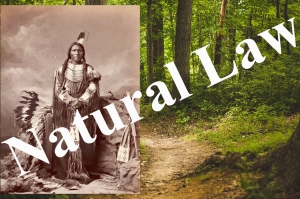
- Tenemos que recuperar el sentido de la (verdadera) Ley Natural

- Dobbiamo recuperare il senso della (vera) Legge Naturale
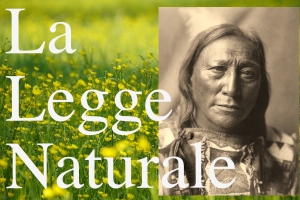
At the end of 2006 WikiLeaks published its first leaks. They were about Somalia. The next year followed documents about Kenya which disclosed classified information about political corruption and human rights abuse: governmental secrets that lead to internal protests.
”Initially we thought that our greatest role would be in China and some former Soviet states and in Africa. We did have early successes in Africa” recounted Assange in the 2012 interview. ”I lived in Kenya in 2007, and we were able to source a document that exposed billions of dollars of corruption by the former president Daniel arap Moi and his cronies. But Moi’s corruption didn’t exist in Kenya alone. The money looted from Kenya was deposited into London banks, properties and businesses, into New York properties. There is no large-scale corruption in the developing world without Western corruption. That was an important lesson to me.” It was probably immediately after the Kenyan leaks that intelligence agencies began to keep an eye on WikiLeaks.
”There is no large-scale corruption in the developing world without Western corruption”
”Another important lesson was that, very quickly, we started receiving information from what we presumed to be disaffected U.S. government employees about the actions of the U.S. military. The United States has historically been a relatively open society. But within the United States, there is a shadow state, and that is the U.S. military, which, as of September, held 4.3 million security clearances. That is equal to the population of New Zealand. That is a closed, totalitarian society that gathers and stores more information than any other society in the world.”
Even if it was in 2007 that intelligence agencies started to keep an eye on WikiLeaks, the first attacks happened in 2008, a few years earlier than the publications concerning the U.S. directly. After the Swiss Banking Secrecy links, in February Julius Baer Bank sided with Judge Jeffrey White of the U.S. District Court for the Northern District of California who issued a permanent injunction against WikiLeaks’ domain registrar, Dynadot, forcing it to lock the WikiLeaks domain name. Fortunately for the organization, mirror sites were not affected and WikiLeaks kept itself online.
A year later, in 2008, a plan to destroy both WikiLeaks and Assange was laid out in a top secret document dated 8 March, 2008. ”The authors were the Cyber Counter-intelligence Assessments Branch of the U.S. Defense Department. They described in detail how important it was to destroy the “feeling of trust that is WikiLeaks’ center of gravity.” This would be achieved, they wrote, “with threats of exposure [and] criminal prosecution” and an ”unrelenting assault on reputation.” The aim was to silence and criminalize WikiLeaks and its editor and publisher” claims the Australian journalist and filmmaker John Pilger, a committed supporter of Assange.
As in any spy movie made in the USA, Russia could not miss in the staging. Russia-gate, the U.S. accusation that links Assange and WikiLeaks to Russian Intelligence – and also current president Donald Trump – didn’t start with the 2016 USA Presidential Election but seven years earlier. In a conference about WikiLeaks‘ Climate-gate revelations (showing the manipulation of climate data) in 2009, Assange said WikiLeaks was accused of having received the data from the FSB (The Federal Security Service of the Russian Federation, preceded by the feared KGB) by UK papers – ”which have close involvement with British intelligence.”
As should be evident by now, WikiLeaks was under attack by the U.S. and Great Britain already in its first years of life but why? Well, if you haven’t figured the answer out by now I’ll tell you- it’s because they don’t want you to know. They don’t want their schemes exposed, they don’t want you to know how things really work and WikiLeaks was informing you of exactly that.
In 2009 WikiLeaks announced that ”the Ministry of Defense in London produced a secret document which described the ‘principal threats’ to public order as threefold: terrorists, Russian spies and investigative journalists. The latter was designated the major threat.” Obviously it was not a coincidence.
The same year Assange announced he was physically surveilled by the U.S. military intelligence at a congress in Berlin between the 26th and the 30th of December. “The U.S. military used the results of this surveillance of me to convict Bradley (Chelsea) Manning,” Assange wrote in his Affidavit.
Undoubtedly all this was enough to generate some anxiety within the small staff of WikiLeaks, and their fears were warranted. This was just the beginning.
The situation started to get much worse after WikiLeaks was contacted by whistleblower Chelsea Manning, a U.S. intelligence analyst assigned to an Army base in Iraq, who made her first contact with Assange’s organization in November 2009 after attempting to contact The New York Times and The Washington Post in vain, despite the importance of the material she had in her hands.
In February 2010 Chelsea Manning sent to WikiLeaks nearly 750,000 classified and unclassified but sensitive, military and diplomatic documents, among them the Afghan War Diary, the Iraq War Logs and videos, among them the famous video Collateral Murder, showing a U.S. helicopter gunship firing on a group of Iraqi civilians, including two Reuters journalists and two children, very likely the most renown revelation of WikiLeaks.
”A Washington Post reporter named David Finkel had the video. We had sources who explained that he had even shown them the video in his home. Yet he concealed it” said Assange in the 2012 Rolling Stone interview.
That same wintry February in Iceland, Assange met 18-year-old Sigurdur Thordarson, an Icelander hacker who started to collaborate with WikiLeaks and was going to become the first FBI informant inside the group.
Celebrity
It was with the publication of Collateral Murder that WikiLeaks editor-in-chief became, at least in the English speaking world, a kind of ‘celebrity.’ Collateral Murder was a bombshell. WikiLeaks published the video in April 2010. The U.S. government responded by launching a witch-hunt throughout the military in order to catch the inside whistleblower. In May, Chelsea Manning was arrested.
Manning confided to an online acquaintance, a young man called Adrian Lamo, very likely an FBI informant, of giving the explosive documents to WikiLeaks. In 2013 Manning was condemned to 35 years in military prison, while Adrian Lamo, who denounced her, was found dead in march 2018 at the age of 37 at his home in Kansas, USA. Manning was granted pardon in 2017 by U.S. President Barack Obama, but under Donald Trump’s government she was again called to testify by the Eastern Virginia Grand Jury against Assange. She has been imprisoned since then for refusing to do so and the Grand Jury has imposed on her a financial penalty of $500/day that has become, after some weeks, a $ 1,000/day fee. She has lost her house and, reportedly, is currently bankrupted.
It was due to the huge amount of documents Manning leaked that WikiLeaks started in 2010 a partnership with some global European and U.S. mainstream outlets in order to publish the documents in a redacted form, removing the names of sources and others in sensitive positions. Those outlets were El País (Spain), Der Spiegel (Germany), Le Monde (France), The Guardian (Great Britain) and The New York Times (United States). They called Assange ‘Man of the Year’ (Le Monde), made money with WikiLeaks’ publications (The Guardian) and disseminated worldwide its leaks and WikiLeaks‘ name and then abandoned them. And the Anglo-Saxon mainstream press has even pursued and accused WikiLeaks’ supporters, creating a public campaign of defamation against Assange and WikiLeaks. It seems, Assange and his staff underestimated the undignified character of many journalists and writers and they also underestimated that mainstream media’s main function is to be the public relations, propaganda and manipulation arm of the ruling power (as former Washington Post journalist Carl Bernstein showed us in his famous article The Cia and the Media, originally published by Rolling Stone in 1977).
The Beginning of the Betrayal of the Mainstream Media
Assange supporters have claimed that since the beginning that media-partnership was a trap. Australian journalist Mark Davis, author of the 2010 film Inside WikiLeaks (an excellent genuine portrait of Assange), was with WikiLeaks‘ editor-in-chief those days in London. ”Assange’s ”naivety” is on display: ”they want to report on our reporting, so they can claim they’re not involved” Assange splitters. “The footage – wrote the press agency Sputnik – makes for thoroughly “chilling” viewing in the present day, given Assange is now in jail as a result of that subterfuge.” An important treacherous move as these media giants could be charged just like Assange for publishing those secret and confidential documents. In this way they made WikiLeaks their source while they were just reporting on something already published. However this seems not to be true at all. According to Davis The Guardian and The New York Times published the Afghan Logs before WikiLeaks.
”At The Guardian‘s headquarters, a special office called ‘the bunker’ was created for WikiLeaks’ revelations. The Guardian journalists Nick Davies and David Leigh with a few IT technicians created the WikiLeaks data base. If Julian is in jail, they should be in jail. They created it; they put it out to the world. What were they doing? They were generating individual reference codes for the documents, they gave it a graphical interface look and they made it searchable. WikiLeaks did not have the capacity to do so”, recounts Mark Davis.
”The New York Times was attending regularly and The Guardian, the NYT and the Spiegel were all looking in the material for stories.” In a conference Mark Davis said he ”witnessed a conversation between (Guardian journalists) David Leigh and Nick Davies while Julian was not there. Nick said ”well, we cannot name this guy” (named on the leaked documents), and I remember Leigh crossed the room to Davies and said ”but we are not publishing it.” What they were saying is that they were not going to create this, they were going to make it searchable, they were going to give it a graphic look, they were going to release it, they were going to share the link to it and then they were going to write a two or three page article saying look at it and say we did not publish it, Julian published it, we are just reporters. Shameful! Clearly they discussed this among themselves but not with Julian. And this is why he is in prison today.” You can see Julian Assange’s reaction at his home while discovering that by doing this these big media publications were washing their hands and how work at ‘the bunker’ was organized in this Mark Davis’ conference: Mark Davis, WikiLeaks Revelations.
In the same video Mark Davis recounts that it was Assange who brought up the issue ”of identifying people within the (Afghan) logs, not The Guardian, not The New York Times. Because they did not care, it was not going to be a reflection on their names, they were relaxed with that. The release was to be on Monday morning. I think it was Friday. Julian said to them ”we need to pull these names down, the names of the informers, it can be dangerous.” Assange asked that the release be delayed, but these media outlets got panicky, as they are competitors, they also thought there was some trickery afoot so they said no we go to press on Monday. So what happened is that all these people went home on Friday afternoon and Julian was left with not just the task, but the moral responsibility of trying to clean those documents. No effort had been made by The Guardian journalists to remove a single name, and despite repeated requests Julian wasn’t provided with a staff or technical support to redact them. His requests for publication to be delayed in order to give him enough time to adequately “cleanse” the documents were ignored. But he did it. He worked all night, till 9 am. I was sharing an apartment with him. Julian removed 10,000 names by himself with no support from The Guardian, or the others. Then came Sunday night.” Afterwards, on Monday morning they published their articles. ”Julian was the blank, they were just reporting but WikiLeaks never released that night, the plan was disrupted by technical issues with the WikiLeaks website. WikiLeaks was meant to publish the logs on Sunday 25th July 2010 in order to allow The Guardian and The New York Times to ‘report’ on the story the next day. But Assange could not go live. At about 9pm it was meant to be live but he couldn’t. And hysterical calls from The New York Times started coming.” As Assange struggled to get the content online, Davis said he was inundated with “panicked, hysterical calls” from The NY Times and The Guardian. ”They had the articles on the front page saying ”these logs WikiLeaks has released, has published, has put online”. They were essentially printing a lie. WikiLeaks didn’t publish that night and in fact didn’t publish the next day. I think it was about two days before WikiLeaks started publishing them.”
It would take several days for WikiLeaks to publish the War Logs. The Guardian and the The NY Times and all the other giant media outlets nevertheless ran their scheduled stories on 26th July 2010, reporting on the release of the logs, despite the fact they hadn’t actually appeared on the WikiLeaks website. “Julian was their fall guy. They printed a lie. These two high priests of journalistic integrity very happily colluded, reporting on something that hadn’t happened. The entire searchable Afghan War Logs interface was the sole creation of The Guardian, they promoted it on their website and in the paper, but then they turned around and said ‘we didn’t publish this, Julian did’. They set him up from the start,” asserts Mark Davis.
”The NY Times ran in the face of fire; it abandoned us once the heat started from the U.S. administration. What The NY Times was concerned about is being swept up in the government’s investigation. If Bradley Manning or another U.S. government employee had collaborated with us to provide us with classified information, and we, in turn, collaborated with the NY Times to provide it to the world, then the argument would run that the Times had been involved in a conspiracy with us to commit espionage. This is something that The Times was deeply concerned about. It said to us that we should never refer to The New York Times as a partner – that was their legal advice,” recounted Assange in the legendary 2012 Rolling Stone interview.
In July 2010 WikiLeaks volunteers placed an encrypted file containing all WikiLeaks data online as “insurance,” in case something happened to the organization.
HELP US GROW. If you respect and value this work, please consider supporting our efforts with a donation. KBNB WorldNews relies on contributions from its readers to do its work. Support good independent journalism and contribute to create a better world: ➡︎ MAKE A DONATION OR FIND OUT HOW YOU CAN CONTRIBUTE.
Sweden’s Rape Saga
Assange visited Sweden in August 2010 and during his visit he had consensual sex with two Swedish women who pressed charges against him for sexual assault. One woman reported he had sex with her without a condom and the other that he tore a condom, both said this happened in the middle of the night after consensual sex had occurred. On 20 August, Swedish police opened a ‘preliminary investigation on minor rape’ against Assange, a charge that exists only in Sweden. The prosecutor immediately issued an arrest warrant and suspiciously the press was duly notified, a praxis forbidden by Swedish law. And what makes it more odd is that the Swedish outlet concerned, the Expressen, is owned by a Swedish tycoon with Jewish ascendance who allegedly supports Israel which is deeply involved in the wars in the Middle East, being this the first time in which a Zionist shadow appears in the Assange persecution from what I know.
”Swedish law strictly forbids police and prosecutors to release to the media the details of any rape-connected complaint. The Expressen had all the details of the case, including the names of the accused and the complainants, within a matter of minutes. Please note further that the right-wing tabloid Expressen belongs to the Bonnier family,” a Swedish family of Jewish origin, who since the beginning of the 19th century has been active in the book industry and later also in the mass media industry. They own the media group Bonnier Group, which has 175 companies in 18 countries. They are “the biggest media owners in Sweden, who are not only pro-American but very much pro-Israel, too. As you know, the pro-Israeli lobby is warmly supportive of America’s Middle Eastern wars, while Assange and his WikiLeaks have the potential to undermine America’s support for the war” has suggested U.S. website CounterPunch.
If they wanted to catch Assange, ”Sweden was perfect for the job. In order to frame Julian in Singapore, they would have to fit him up with drugs. To frame Julian in England, they might have to report he had skinned and roasted cats or at least dumped a kitten in a trash bin. To hang a frame on Julian in Sweden only required reporting sex between consenting adults,” brilliantly put forward CounterPunch.
In Stockholm Assange was a guest of one of the woman who later reported him, Anna Ardin, a feminist, a Christian against abortion, a member of the Swedish Democratic Party, with special knowledge of politics, faith, Latin America and who allegedly used to work for the Expressen. The Italian news website L’Antidiplomatico has written that she ”was born in Cuba and is connected to right-wing Cuban organizations.” Craig Murray, a British former diplomat turned political activist, human rights campaigner, blogger and whistleblower has suggested that she ”worked with CIA-funded anti-Castro groups in Havana and Miami.” The other woman, Sofia Wilen, met Assange at a conference.
While in Sweden’s capital, Ardin insisted Assange stay at her flat as she was going to be outside the city, but strangely she returned early.
Craig Murray reconstructs the Ardin/Wilen/Assange relationship in a skeptical way:
– “11 August: Assange arrives in Stockholm for a press conference organised by a branch of the Social Democratic Party. Anna Ardin has offered her one bed flat for him to stay in as she will be away.
– 13 August: Ardin comes back early. She has dinner with Assange and they have consensual sex, on the first day of meeting. Ardin subsequently alleges this turned into assault by surreptitious mutilation of the condom.
– 14 August: Anna volunteers to act as Julian’s press secretary. She sits next to him on the dais at his press conference. Assange meets Sofia Wilen there. Anna tweets at 14.00: ‘Julian wants to go to a crayfish party, anyone have a couple of available seats tonight or tomorrow?” #fb. This attempt to find a crayfish party fails, so Ardin organises one herself for him, in a garden outside her flat. Anna and Julian seem good together. One guest hears Anna rib Assange that she thought “you had dumped me” when he got up from bed early that morning. Another offers to Anna that Julian can leave her flat and come stay with them. She replies: “He can stay with me.”
– 15 August: still at the crayfish party with Julian, Anna tweets: ‘Sitting outdoors at 02:00 and hardly freezing with the world’s coolest smartest people, it’s amazing! #fb. Julian and Anna, according to both their police testimonies, sleep again in the same single bed, and continue to do so for the next few days. Assange tells police they continue to have sex; Anna tells police they do not. That evening, Anna and Julian go together to, and leave together from, a dinner with the leadership of the Pirate Party. They again sleep in the same bed.
– 16 August: Julian goes to have sex with Sofia Wilen: Ardin does not warn her of potential sexual assault – even if she knew Assange wanted to have sex with Sofia. Another friend offers Anna to take over housing Julian. Anna again refuses.
– 20 August: after Sofia Wilen contacts her to say she is worried about STD’s including HIV after unprotected sex with Julian, Anna takes her to see Anna’s friend, fellow Social Democrat member, former colleague on the same ballot in a council election, and campaigning feminist police officer, Irmeli Krans. Ardin tells Wilen the police can compel Assange to take an HIV test. Ardin sits in throughout Wilen’s unrecorded – in breach of procedure – police interview. Krans prepares a statement accusing Assange of rape. Wilen refuses to sign it.
– 21 August: Having heard Wilen’s interview and Krans’ statement from it, Ardin makes her own police statement alleging Assange has surreptitiously had unprotected sex with her eight days previously.”
Australian ABC network reported that according to Mr. Assange’s statement the text messages of Sofia Wilen and Anna Ardin included the following:
– On 17 August, SW wrote “JA did not want to use a condom.”
– On 20 August, while at the police station, SW wrote that she “did not want to put any charges on Julian Assange” but that “the police were keen on getting their hands on him.”
– According to the statement she was “shocked when they arrested him” because she “only wanted him to take a test.”
– On 21 August, SW wrote that she “did not want to accuse” Julian Assange “for anything” and that it was the “police who made up the charges.”
– On 23 August, SW wrote that it was the police, not herself, who started the whole thing.
– On 26 August, AA wrote that they ought to sell their stories for money to a newspaper.
No surprise if Sofia Wilen, perhaps realizing how she had been used, withdrew her report. The WikiLeaks founder said he “has been denied permission to read all of the text messages.”
Nils Melzer, the UN Special Rapporteur on torture and other cruel, inhuman or degrading treatment or punishment, who confessed he a was a victim of the smear campaign against Assange, wrote after visiting him at Belmarsh Prison shortly after his detention at the Ecuadorian Embassy of London: ”Surely, I thought, Assange must be a rapist! But what I found is that he has never been charged with a sexual offence. True, soon after the U.S. had encouraged allies to find reasons to prosecute Assange, two women made the headlines in Sweden. One of them claimed he had ripped a condom, and the other that he had failed to wear one, in both cases during consensual intercourse — not exactly scenarios that have the ring of ‘rape’ in any language other than Swedish. Mind you, each woman even submitted a condom as evidence. The first one, supposedly worn and torn by Assange, revealed no DNA whatsoever — neither his, nor hers, nor anybody else’s. Go figure. The second one, used but intact, supposedly proved ‘unprotected’ intercourse. Go figure, again. The women even texted that they never intended to report a crime but were ‘railroaded’ into doing so by zealous Swedish police.”
Assange described what happened in those days in Sweden in the Affidavit he wrote in 2013 concerning about what could happen to him in the future: ”On 20 August 2010, Swedish police opened a ‘preliminary investigation’ against me. The next day, the more serious allegation was dropped, but after an intervention police authorities reopened the closed preliminary criminal investigation against me on 1 September 2010. I cancelled my other appointments and remained in Sweden where I appointed a Swedish lawyer. I gave an interview to the police on 30 August 2010 in relation to the only remaining allegation.”
”I was highly concerned for my personal safety and the safety of WikiLeaks’ operations while I remained in Sweden, but I stayed for another five weeks after the ‘preliminary investigation’ was initiated in order to clear my name and to cooperate with the police investigation.”
”Then in response to the Borgström application (Ardin’s lawyer), Prosecutor Marianne Ny, decided to “resume” the ‘rape’ ‘preliminary investigation’ and expand Ardin’s complaint with a number of additional allegations.”
Assange goes on: ”on the 8 of September the head of the Swedish military intelligence service (“MUST”) publicly denounced WikiLeaks in an article entitled ‘WikiLeaks a threat to our soldiers‘. I became increasingly concerned about Sweden’s close relationship to the U.S. in military and intelligence matters. Around this time I was warned by a trusted intelligence source that the Swedish intelligence service SÄPO had been privately told by its U.S. counterparts that U.S.–Sweden intelligence-sharing arrangements would be “cut off” if Sweden was viewed to be sheltering me.” So ”I considered my continued presence in Sweden to be a serious risk to my personal safety and a risk to WikiLeaks‘ continued publications. I asked my lawyer to request permission for me to leave Sweden to attend planned engagements,” wrote Assange. ”On the September 15th my lawyer in Sweden obtained an agreement from the prosecutor Marianne Ny that I was free to leave Sweden. I left Sweden on 27 September 2010, only after I had obtained an assurance from the prosecutor Marianne Ny that I could leave the country.”
Even if these are the real facts, giant media outlets over the years have convinced the misinformed public that Assange was accused of rape and as a common criminal was escaping from justice in the Ecuadorian Embassy. He was just trying to avoid being extradited to the U.S. while waiting to be questioned by Swedish authorities, something that Sweden refused to do for many years violating Swedish law and Assange’s human rights.
“The political and media class crafted a narrative of half-truth about the sex charges Assange was under investigation for in Sweden. They overlooked the fact that Assange had been allowed to leave Sweden by the original investigator, who dropped the charges, only for them to be revived by another investigator with a well-documented political agenda’’ stressed British journalist Jonathan Cook. “They failed to mention that Assange was always willing to be questioned by Swedish prosecutors in London, as had occurred in dozens of other cases involving extradition proceedings to Sweden.” Something Swedish prosecutors failed to do, subjecting him to many years of unlawful detention without charge in prison, under house arrest and in the Ecuadorian Embassy.
It is important to notice, as New Zealander journalist Suzie Dawson has highlighted, that also other people close to WikiLeaks have been accused of sexual misconduct, among them, just to cite one, Jacob Appelbaum who was an early developer of the Tor Project, a free software network designed to provide online anonymity, and WikiLeaks supporter. Within days, Appelbaum left the Tor Project. Appelbaum maintained his innocence and was never charged with a crime, but he became persona non grata in most of the industry.
On the 27th September 2010, the day Assange was finally leaving Sweden on a direct flight from Stockholm-Arlanda to Berlin-Tegel on SAS (Scandinavian Airlines System), his suitcase was seized. It carried three encrypted laptops containing WikiLeaks documents, including evidence of war crimes, legal material and personal data. This probably occurred not only to get WikiLeaks and Assange’s material but also to send a clear message to the organization.
”No explanation has been given to me, directly or indirectly, as to the whereabouts or the reason for the disappearance of the WikiLeaks equipment and data, despite my efforts and the efforts of those acting on my behalf to recover it. None of the entities involved, including the Swedish police, the airline SAS, the airports Arlanda and Tegel and related handling companies GlobeGround and Acciona, have offered an explanation, and in one case refused to communicate at all,” wrote Assange.
The First Treachery within WikiLeaks
In September 2010 German IT, activist and first WikiLeaks’ spokesman Daniel Domscheit-Berg was suspended from WikiLeaks. He left Assange’s organization taking with him unpublished submissions and confidential documents. He said later on he destroyed them. On the 12th December he opened OpenLeaks.org, a rival whistleblowing site which was not successful and had a short life.
“I wouldn’t do anything that could potentially create difficulties for a source,” said Domscheit-Berg explaining the reason of his suspension as if WikiLeaks was not caring about its sources.
In August 2011, Domscheit-Berg was ”kicked out of Germany’s legendary hacker organization the Chaos Computer Club (CCC),” reported Der Spiegel, ”for allegedly exploiting their reputation for his own ends.”
”The CCC‘s spokesman, Andy Müller-Maguhn has been acting as an intermediary between Domscheit-Berg and his estranged former colleague Assange. At stake were the confidential documents that Domscheit-Berg apparently took when he left WikiLeaks in 2010. ”The negotiations have not reflected well on Domscheit-Berg’s character”, Müller-Maguhn told Der Spiegel in an interview.
SPIEGEL: “Perhaps he (Daniel Domscheit-Berg) can’t surrender the material because he doesn’t have it. Last week he told the weekly magazine Der Freitag: “I took no documents from WikiLeaks with me.”
MULLER-MAGUHN: “That is exactly the reason for me to suspend my mediation efforts. He told me last Thursday evening that he had to look at each document before handing them over. It doesn’t match up. I have never personally seen the documents. But Assange told me that there are about 3,000 submissions, some of them with several hundred documents.”
Allegedly WikiLeaks confirmed that Domscheit-Berg took 5 gigabytes of data relating to the Bank of America, the internal communications of 20 neo-Nazi organizations and U.S. intercepted information for “over a hundred internet companies,” destroyed videos of a major U.S. atrocity in Afghanistan and data relating to the entire U.S. no-fly list.
In 2011 Daniel Domscheit-Berg published a book about Assange, WikiLeaks: My Time with Julian Assange at the World’s Most Dangerous Website, which was used to produce in 2013 Bill Condon’s film The Fifth State. Assange & WikiLeaks did not like the film and his supporters claim the film’s goal was depicting Assange as a mad, megalomaniacal man.
After the Afghan War Diaries came out” in July 2010, ”The New York Times ran a hostile profile of Bradley Manning,” today known as Chelsea Manning, ”that psychologized him into being a sad, mad fag, that can only be described as a tabloid piece. Then, when we published the Iraq War Logs (October 2010), we discovered details about the deaths of more than 100,000 civilians, and details of the torture of more than 1,000 people. Every other paper ran the story. The United Nations and a number of countries investigated the allegations, and even the U.S. military’s own internal documents referred to the abuses as torture. Yet the NYT refused to use the word “torture” at all. Instead, they ran a sleazy hit piece against me on the front page that was factually inaccurate. It said, for instance, that I had been charged with sexual abuse when I had not, and that 12 people had defected from our organization when we had suspended one (Daniel Demescheit-Berg). I don’t mind taking a hit, but it must be factually accurate. For the Times to descend into a tabloid hit piece on the front page when we had just exposed the deaths of more than 100,000 civilians was not commensurate. Bill Keller, the former editor of The New York Times, also came out and said how pleased the White House was with them that they had not run the WikiLeaks material the White House had asked them not to. It is one thing to do that, and it’s another thing to proudly proclaim it. Why did Keller feel the need to tell the world how pleased the White House was with him? For the same reason he felt the need to describe how dirty my socks were,” recounted Assange in the 2012 Rolling Stone‘s interview.
After The Iraq leak (October 2010), ”the intelligence activities against me and WikiLeaks by the U.S. and other governments made known to me increased. U.S. National Security Agency (NSA) officials reportedly stated that they had evidence that the Russian intelligence agency FSB was closely surveilling WikiLeaks and myself” wrote Assange in his Affidavit, ”which is capable of organizing ”the right teams’ to target WikiLeaks and ‘shut it down forever.”
”According to Icelandic authorities,” Assange reported in his 2013 affidavit, a “wide-ranging investigation into WikiLeaks and Julian Assange, by the FBI, was quietly gathering material since at least October 2010,” six months after the arrest” of Chelsea Manning.
Tightening of WikiLeaks and Assange persecution after Cable-gate
”The publishing mindset at WikiLeaks, it’s fair to say, is radically different than that of the mainstream press. Where a newspaper that received 500,000 documents might release 20, you released all of them. Cable-gate is 3,000 volumes of material. It is the greatest intellectual treasure to have entered into the public record in modern times. The New York Time released just over 100 cables. There are over 251,000 cables in Cable-gate. So our approach is quite different to that of the Times. The Times in its security arrangements was only concerned with preventing The Washington Post from finding out what it was doing. But it told the U.S. government every single cable that it wanted to publish,” said Assange to Rolling Stone.
Ever since November 2010, when WikiLeaks released of what became known as Cable-gate (some 250,000 classified U.S. diplomatic cables dated between December 1966 and February 2010 containing diplomatic analysis from world leaders, and the diplomats’ assessment of host countries and their officials), WikiLeaks’ members and the group’s supporters have found themselves detained at airports, subpoenaed to testify before a grand jury in the USA, and ordered to turn over their Twitter accounts and e-mails to authorities.
Swedish Rape Saga, Act 2
Two days after WikiLeaks released the diplomatic cables, a special Swedish prosecutor reopened the rape case saying she wanted to question Assange over two counts of sexual molestation, one count of unlawful coercion and one count of ‘lesser-degree-rape.’ Assange, ‘still a free man,’ denied the allegations and said he was happy to face questions in Britain.
On November the 20th Swedish police issued an international arrest warrant via Interpol (the International Criminal Police Organization) for Assange.
In a 2017 conference in Chile, WikiLeaks World Ambassador Joseph Farrell related: ”In August , the Swedish Prosecutor-General closed the investigation saying no crime was suspected. Then it was reopened again three weeks before the Swedish elections. One week before the preliminary investigation started, representatives of the Swedish intelligence stated that WikiLeaks jeopardized U.S.-Sweden cooperation. Swedish outlets reported that the Obama administration was encouraging its allies to prosecute Assange and to limit his right to move freely.”
Practically when WikiLeaks was ready for publishing the diplomatic cables Sweden issued an international warrant arrest, even a red alert by Interpol, as if Assange was a dangerous criminal. Because of this Julian lost his freedom on December the 10th 2010.”
”Initially he was imprisoned for 10 days in the UK. Then he was sentenced to 550 days house arrest. He did not want to go to Sweden because he knew he was going to be sent to the USA from there, where he risked the death penalty. Bur the British Court ordered his extradition to Sweden. It’s then when Assange asked asylum of Ecuador. At no time was he accused of committing a crime. Sweden wanted to extradite Assange to interrogate him, something it could have done all these years with different methods but has refused to do, saying it is inappropriate and illegal to question Assange in the Embassy, nevertheless Swedish prosecutors have interrogated 44 peoples in the United Kingdom during these years.”
Assange wrote in his Affidavit that on 29 November 2010 ”State Department spokesman P.J. Crowley stated that ”we are investigating aggressively” into WikiLeaks and that a State Department ”War Room,” which is different from the Pentagon ”War Room,” had been set up.”
”On 30 November 2010, Interpol issued a Red Notice to 188 countries for my arrest in relation to the Swedish “preliminary investigation” (for which no charges or indictment existed). Interpol also published a press release translated into five languages promoting the Red Notice.”
Assange/WikiLeaks, Drops, Bans and Financial Attacks
December 2010 was a month in which the Empire assaults against Assange and his organization’s finances were aggravated, also were attacks on WikiLeaks’ dissemination and presentation. They show us how far the Empire’s tentacles reach. Chronologically, the following attacks have been reported:
1 December. Amazon.com removed WikiLeaks from its servers at 19:30 and its website was unreachable until 20:17 when the site defaulted to its Swedish servers hosted by Bahnhof. On that occasion WikiLeaks stated on its official Twitter page that “If Amazon is so uncomfortable with the first amendment (free speech) of the constitution of the United States (about freedom of speech), they should get out of the business of selling books.”
2 December. Tableau Software (that helps anyone see and understand their data) withdrew its visualizations from the contents of the leak, stating that it was directly due to political pressure from Joe Lieberman of the U.S. Democratic Party.
2 December. Sweden issued a European Arrest Warrant, which was certified by the U.K. Serious Organized Crimes Agency (SOCA).
In this period Assange wrote in his affidavit: ”Days later in early December 2010, the economic persecution against WikiLeaks and me personally started to commence. VISA, MasterCard, Bank of America, Western Union, PayPal and others implemented an arbitrary blockade against WikiLeaks’ donations at the peak of the donations period. The blockade was imposed outside of any administrative or legal process. The blockade also affected my personal economic freedoms. I was placed into Thomson Reuters World-Check’s database, which has prevented me from opening new bank accounts or registering new businesses. World Check is a confidential blacklisting service used by banks and accountancies to check for “Politically Exposed Persons.”
”The blockade against WikiLeaks was imposed without an underlying judicial or administrative order in the United States or anywhere else, although instances of political pressure on these companies have come to light. The effects of this persecution are global. Prominent politicians in the United States attempted to formalize the blockade into law. These attempts failed after the U.S. Treasury found that there were no lawful grounds to blacklist the WikiLeaks organization.” The blockade was weakened after WikiLeaks won a Supreme Court case in Iceland against VISA subcontractor Valitor, two and a half years later.
3 December. Paypal discontinued its service.
The same day The Guardian reported that access to WikiLeaks was blocked for federal U.S. workers. It seems the U.S. Library of Congress, the U.S. Commerce Department and other U.S. government agencies confirmed the ban was in place.
4 December. Paypal cut off the account used by WikiLeaks to collect donations and blocked the German Foundation Wau Holland Stiftung’s (WHS) access to its account, which received donations for other projects in addition to WikiLeaks. The same day, PayPal also attempted to freeze the remaining money in the account for 180 days. The money was released immediately after a WHS lawyer intervened.
It was reported in a 4 December 2010 article by MSNBC that ”the Obama administration warned federal government employees and students in educational institutions studying careers in public service that they must refrain from downloading or linking to any WikiLeaks documents. However, State Department spokesman P.J. Crowley denied ordering students, stating, “We do not control private networks. We have issued no authoritative instructions to people who are not employees of the Department of State.” ” Allegedly this advice was given also at Columbia University.
6 December. The Swiss bank PostFinance announced that it had frozen the assets of Assange for his Legal Defense; on the same day, MasterCard stopped payments to WikiLeaks.
7 December. VISA and MasterCard blocked WikiLeaks account and stopped processing donations to WikiLeaks.
First Arrest of Julian Assange
On December the 7th, 2010, Assange was arrested by Scotland Yard (British Police) pursuant to the international arrest warrant issued by Sweden.
”The day after U.K. authorities certified the Swedish arrest warrant, I appeared at the police station, having made a prior appointment. This is the first time I was informed of the accusations against me in Sweden. I was arrested and placed in solitary confinement in Wandsworth high security prison (London) for ten days,” wrote Assange in his affidavit.
”One day after I was imprisoned, the U.K. newspaper The Independent reported that the U.S. and Sweden had entered informal talks regarding my extradition from Sweden to the United States in connection with the U.S. Grand Jury and FBI investigation against WikiLeaks.”
14 December. U.S. ”Air Force is barring its personnel from using work computers to view the Web sites of The New York Times and more than 25 other news organizations (like The Guardian) and blogs that have posted secret cables obtained by WikiLeaks, Air Force officials said” wrote The New York Times.
15 December. Germany’s FA Kassel tax authority initiated an investigation into Wau Holland Stiftung‘s charitable status which processed WikiLeaks‘ donations. The investigation, WHS representatives were privately told, was politically motivated.
Nine days after Assange’s arrest, on 16 December 2010, he was released from jail. At the second hearing in London, he was granted bail by the High Court and released after his supporters paid £240,000 in cash and sureties and he was sentenced to 550 days house arrest. That was nine days after ‘WikiLeaks began publishing more than 250,000 leaked U.S. State Department diplomatic cables, which were trickling out at a rate of about a hundred a day.
While under house arrest in the United Kingdom, Assange requested the Republic of Ecuador to grant him refugee status at its Embassy in London. He was convinced that all this was a plot to extradite him to the United States where he could face a life sentence or even a death penalty. In hindsight, could anyone assert Assange was wrong?
Share this report! ⬇︎
Read also: PART II – WikiLeaks Revelations
RELATED ARTICLES: How the USA created the post-war industrial-economic power of Germany and Japan and the European Union – The Alarming Chinese Social Credit System and the Rise of Authoritarian Surveillance States – Why I am not a Capitalist, nor a Marxist – Why Overcoming Nationalisms and Uniting is Necessary
WAIT, DON’T GO! Writing the truth is dangerous. If you value our hard work, please consider supporting our efforts sharing our article and with a donation (below). To support Julian Assange and WikiLeaks please donate to WikiLeaks ➡︎ here.
Make a DONATION with PayPal or you card
Google, Facebook, Instagram, Twitter… are trying to silence independent media fighting for the truth and a better world. Given this fact, it is extremely important for people to search out information for themselves, go directly to our website and others, subscribe to diverse email lists, and not rely on social media for information. Please enter your e-mail and click to subscribe to get our reports in your inbox

Follow us! We are on the main social networks, Facebook, Twitter, Instagram, VK and Telegram (KBNBWorld). You can also follow as on our new video channels: BitChute, UGETube or You Tube.
Cover image by Diana Balderrama.
KBNBWorldNews is a Non-Profit News Organization.
Contact with the editorial office: kbnbworldnews@gmail.com
Media: Republishing Guidelines


KBNBWorldNews Copyiright
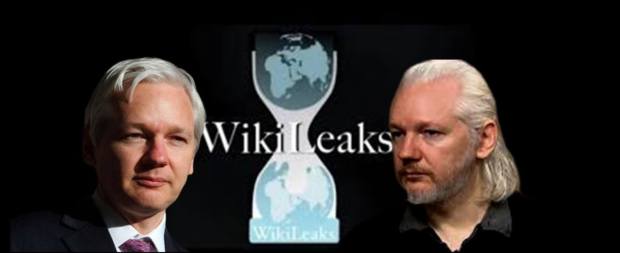


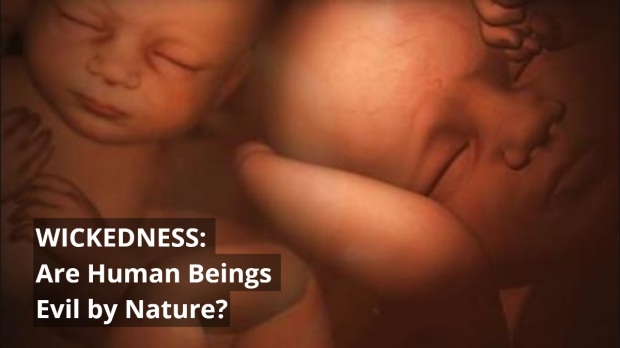
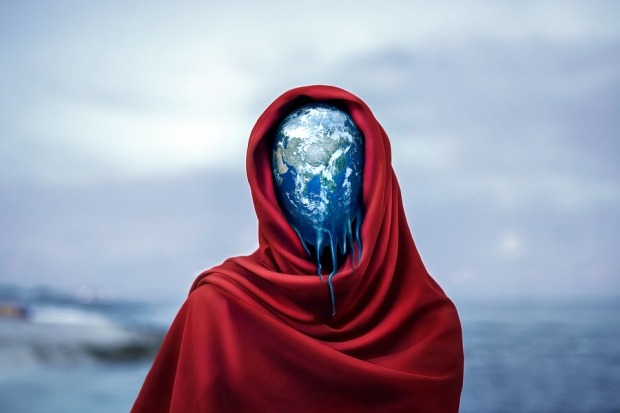
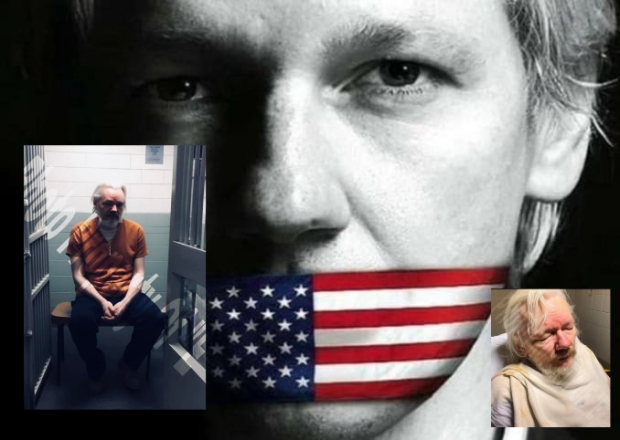
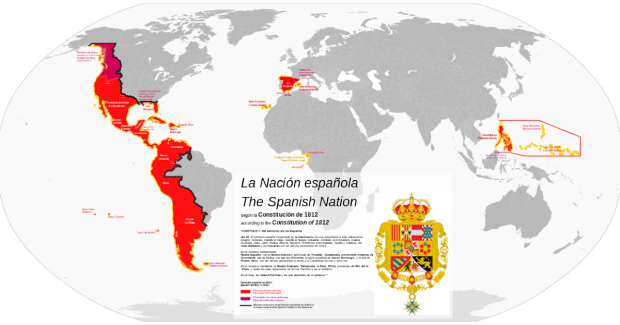
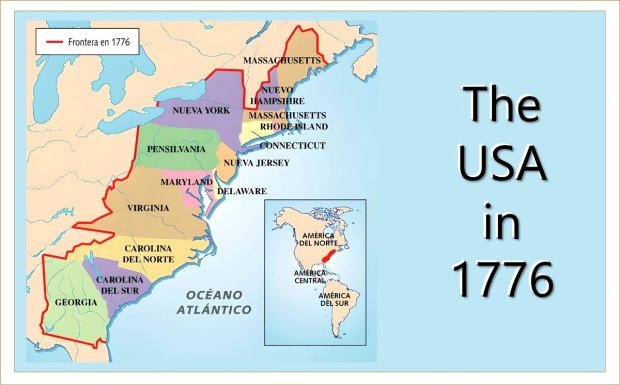
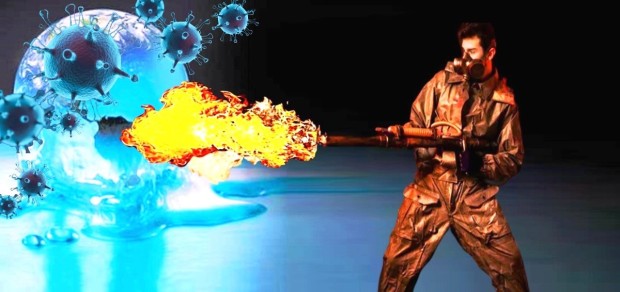
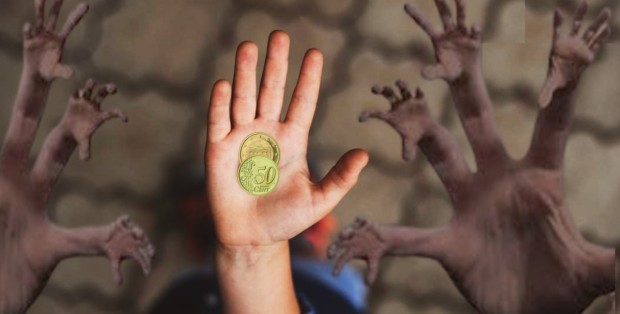
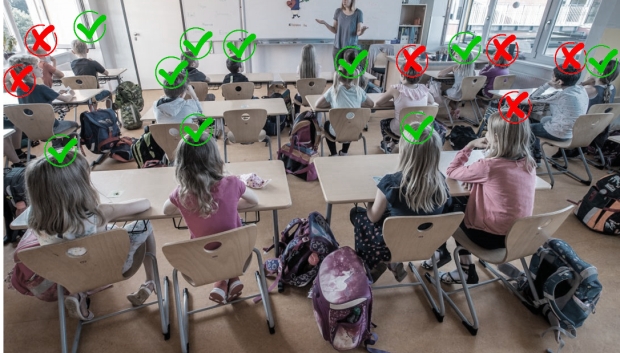
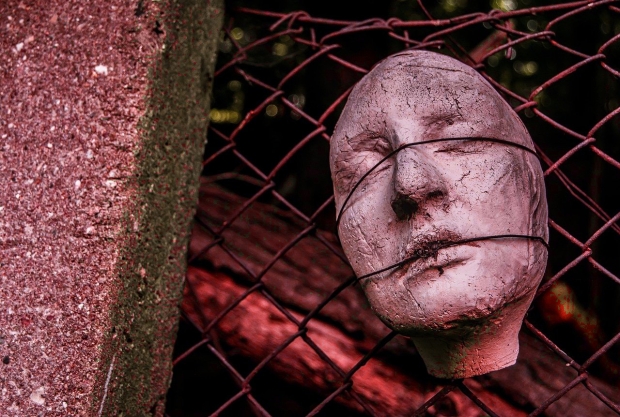
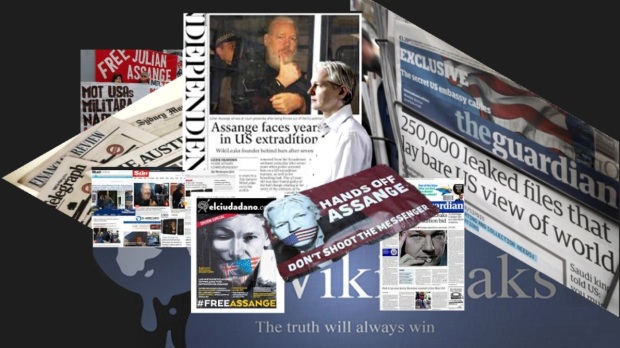
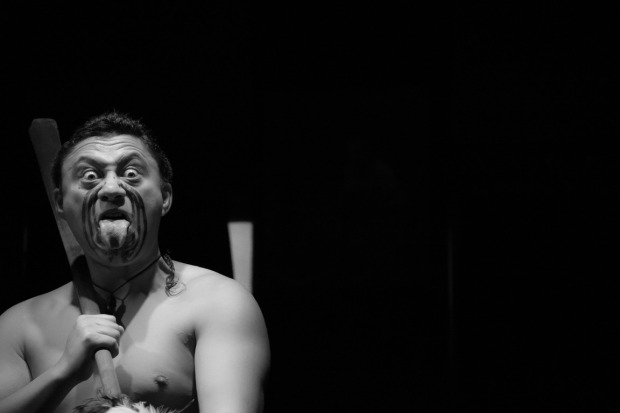
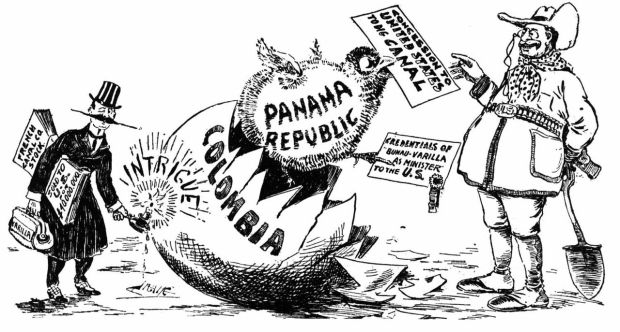
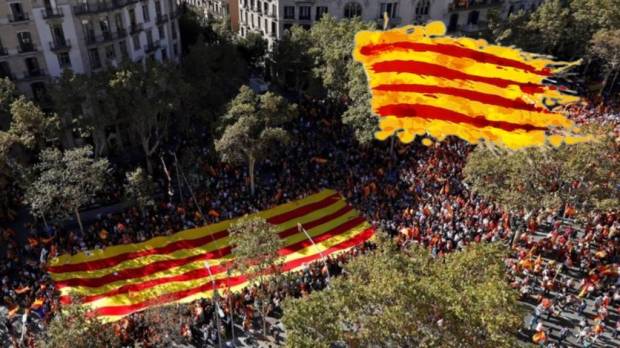
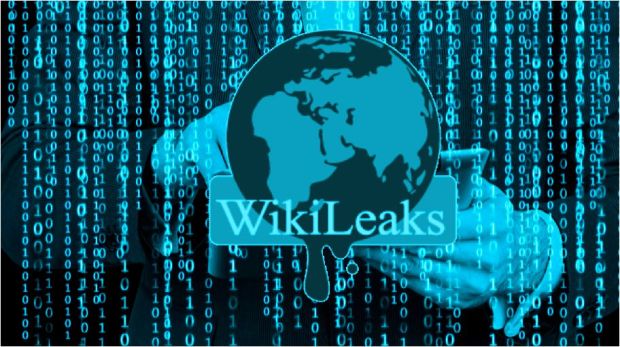
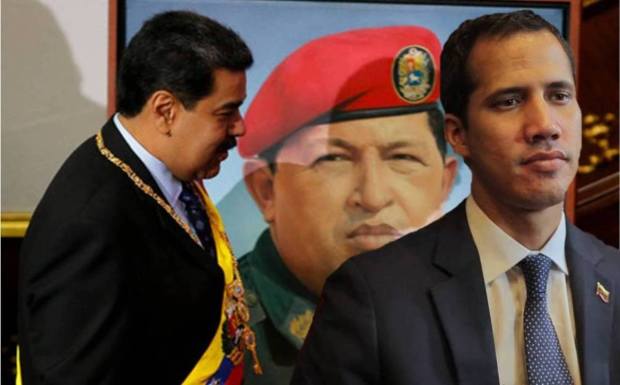
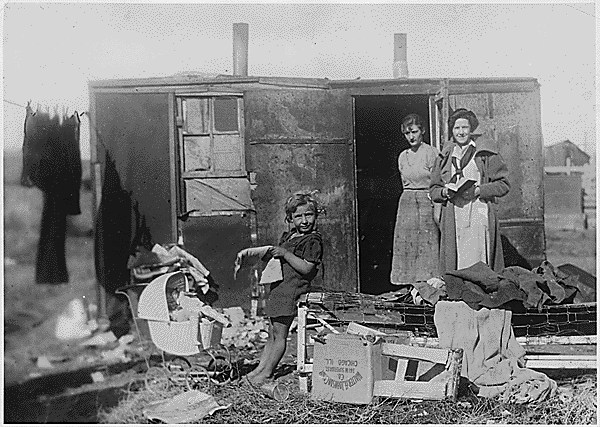
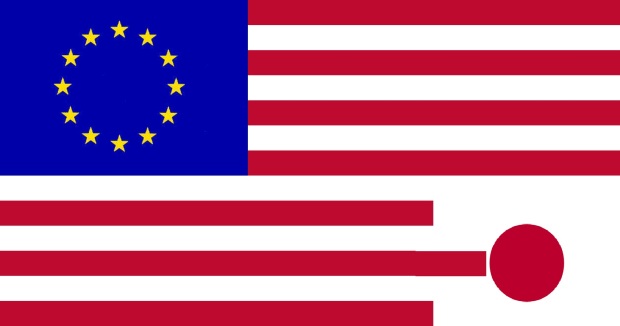
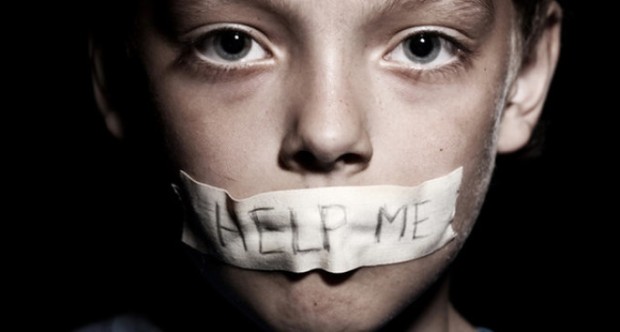
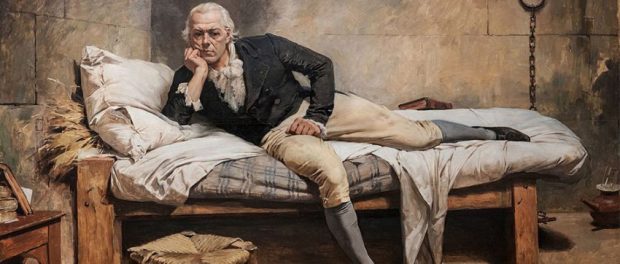
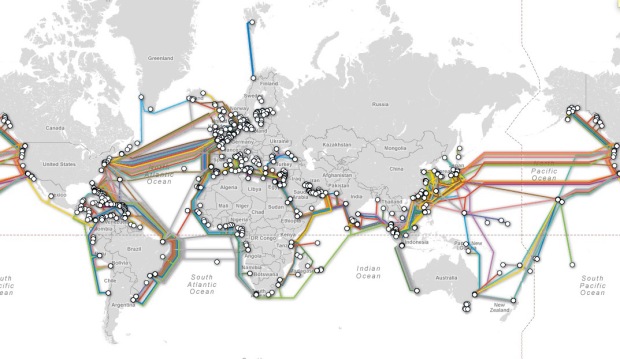
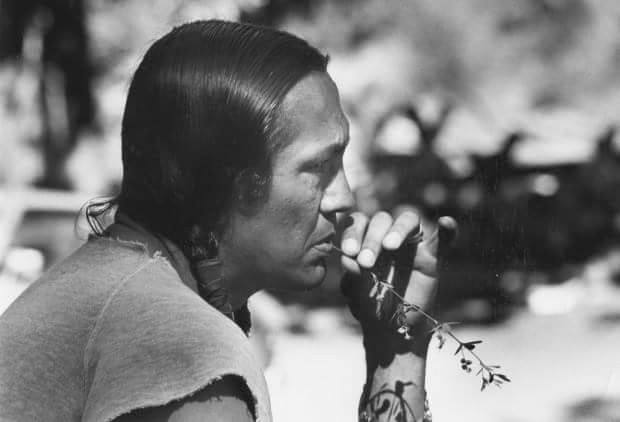
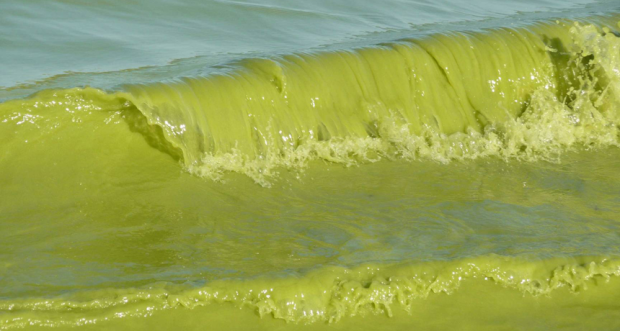
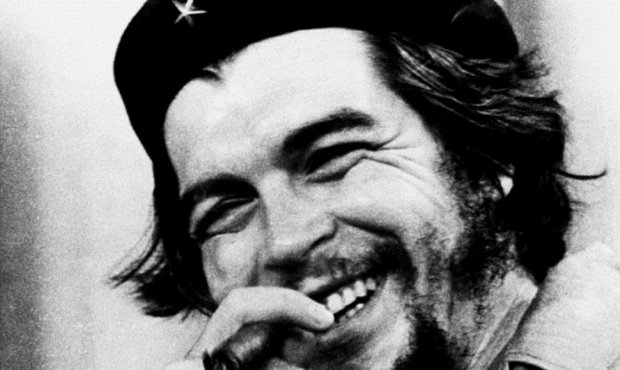
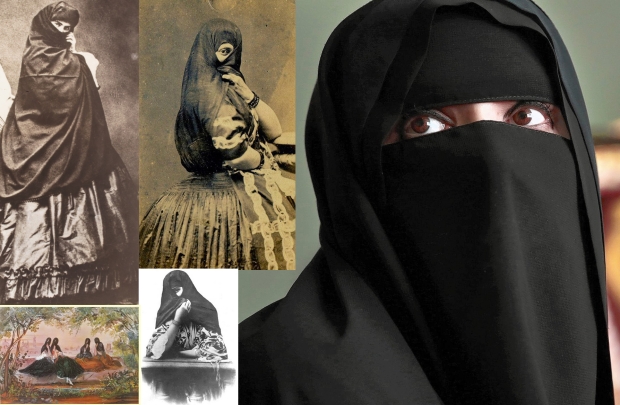
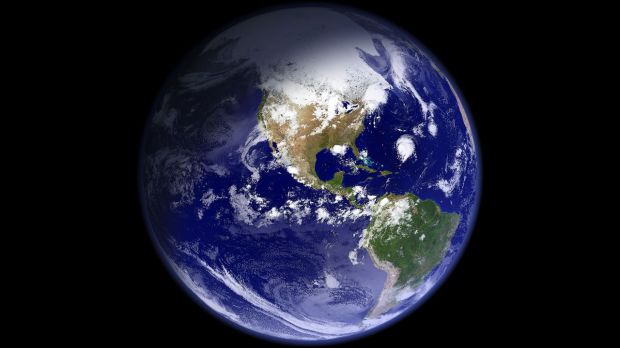
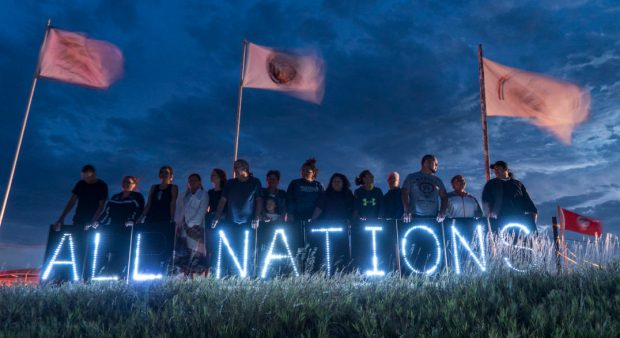
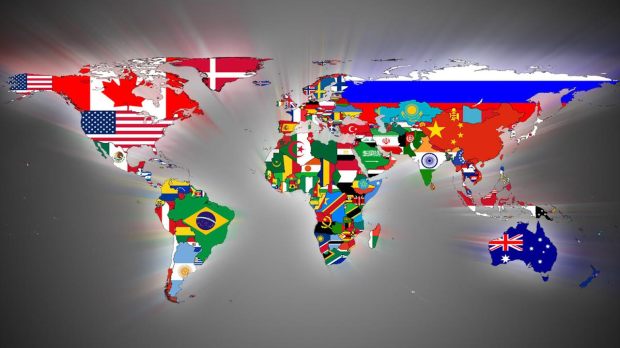
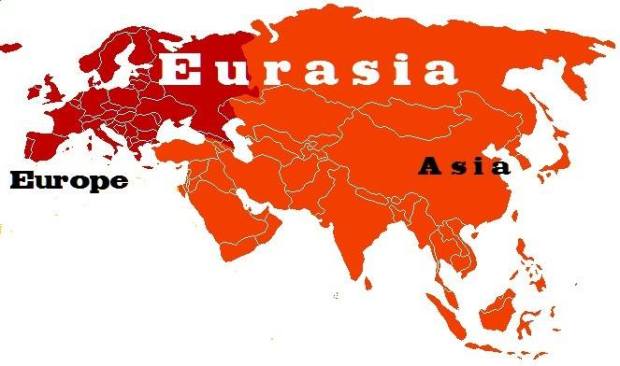
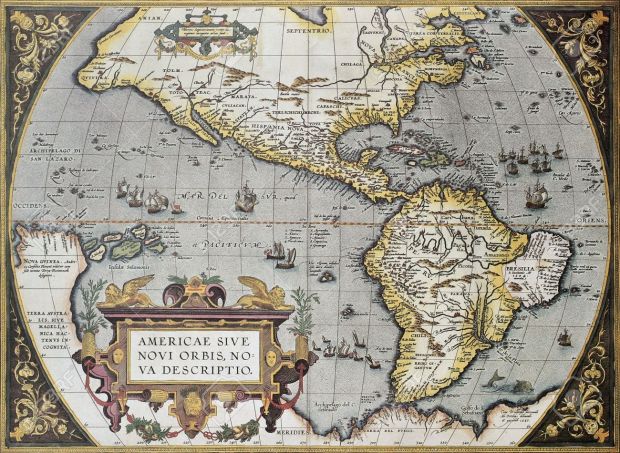
Thank you for a great article. Not all are given from the in the media.
LikeLike